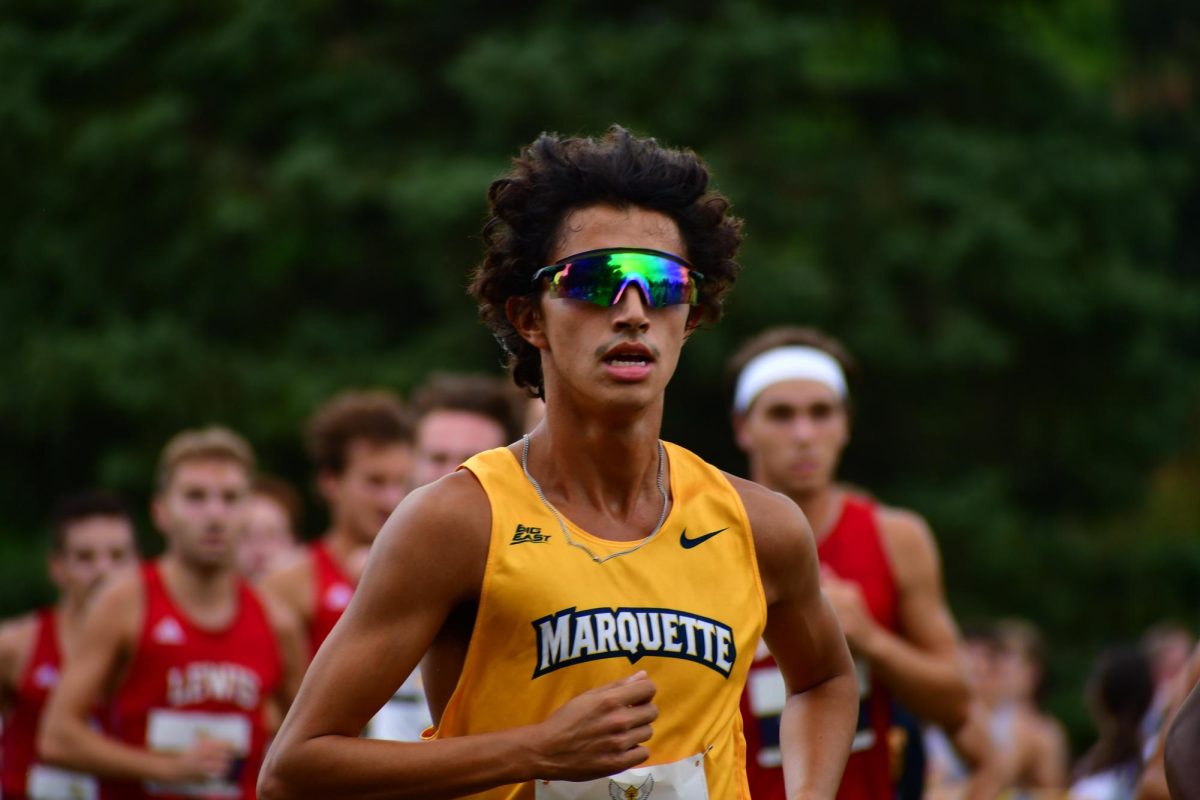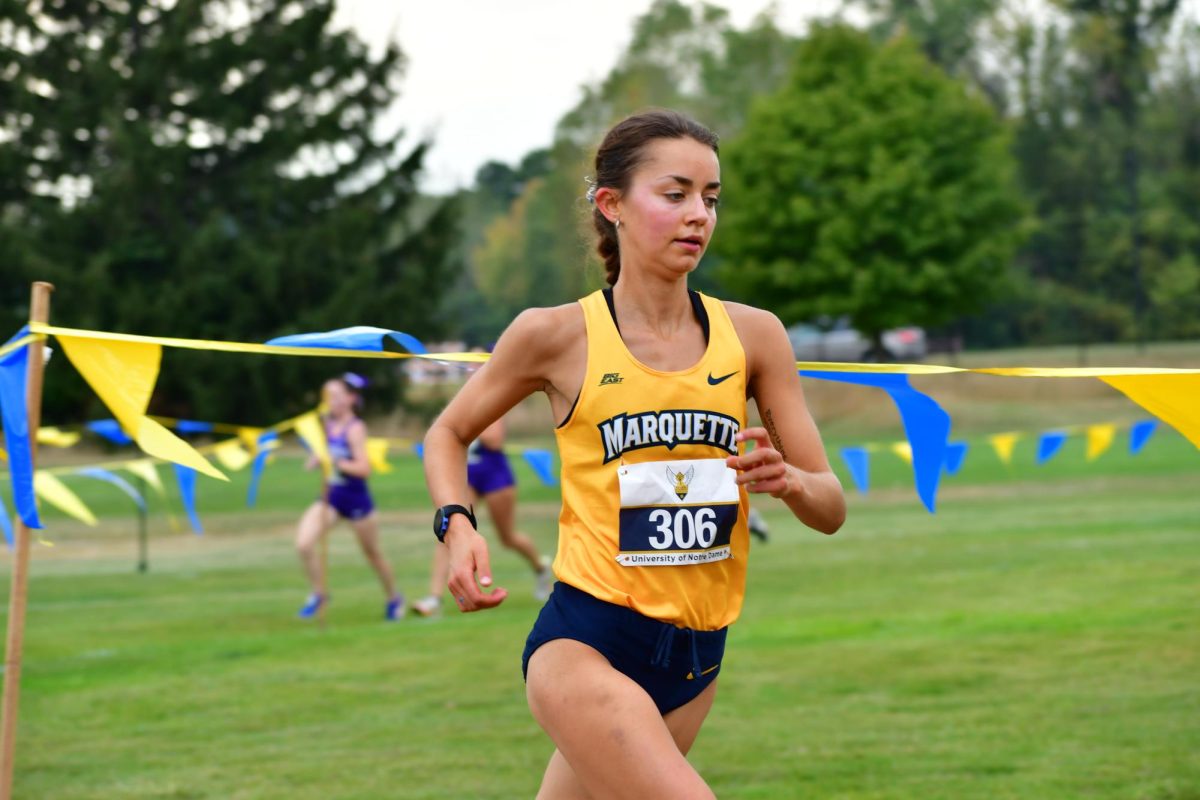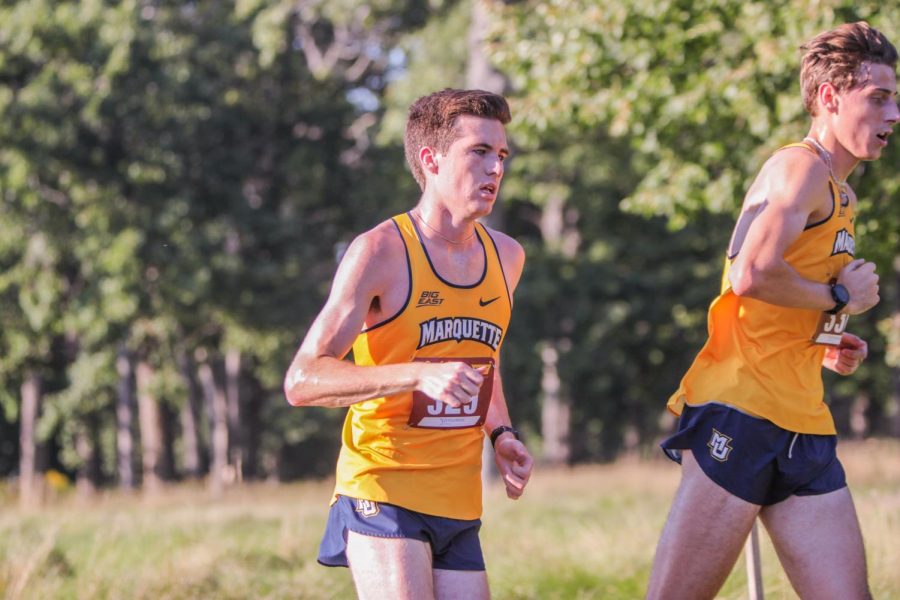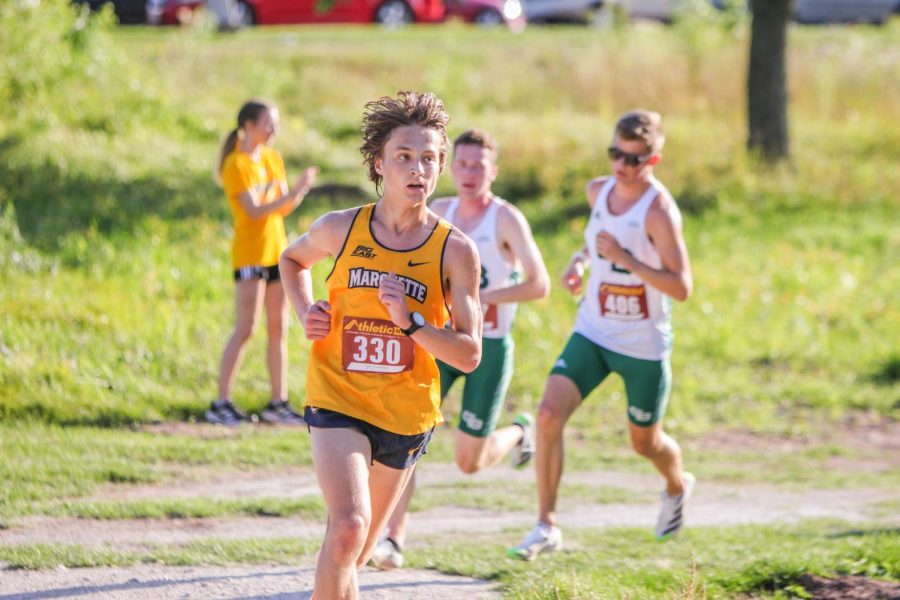The achievements of Marquette cross-country runners go beyond winning medals from races. Over the last three years, 15 runners have gone on to further their studies in graduate school and beyond.
Some student-athletes have decided to remain at Marquette for a few more years, while others have accepted scholarships to schools like Iowa, Princeton and Texas, among others.
The process of looking at these schools and the idea of continuing to study after four years typically starts during sophomore year. Coach Mike Nelson brings up the option to his student-athletes, since most times they do not know about the opportunities available.
“A lot of these student-athletes that have gone on to graduate school are getting most or all of it paid for,” Nelson said. “A lot of them don’t even know that those opportunities are out there, so we start talking about that early on.”
Peter Bolgert graduated in 2012 and was named to the Academic All-American team two times in his Marquette career. He received his bachelor’s degree in mathematics and physics and used his 3.99 grade point average to attend Princeton this fall on a full scholarship.
Olivia Johnson was also a member of the 2012 Academic All-American team and graduated with a degree in accounting and a 4.0 grade point average. She is from Milford, Iowa, and decided to head back to her home state’s University of Iowa to pursue a Ph.D. in accounting.
“Location was almost one reason I almost didn’t go to Iowa actually,” Johnson said. “The other eight schools I applied to were in warm places. However, the people here clicked with me the most.”
On more than one occasion, Johnson remembers being on a morning run and talking to Nelson about schools. He listens to his athletes and encourages them to continue studying. He has no problem with his student-athletes missing practices during the track season to interview or visit another school.
Blake Johnson visited schools like Ohio State before deciding on Wisconsin-Milwaukee. He graduated from Marquette last year with a degree in exercise physiology and has moved toward studying ergonomics for a master’s degree in industrial manufacturing engineering.
He finished first for Marquette in all of its 2011 cross-country meets. He believes having the perfect balance of mental and physical strength plays a role in why runners are among the smartest student-athletes.
“It’s such a unique sport where you can be physically fit, but if your wit and your mind are not about that, you’re going to have a terrible day,” Johnson said. “There’s points during a race where you really want to give up since you’re hurting so bad, but you have to be mentally tough and push through it. Cross-country runners put a lot of hard work in on a daily basis.”
The discipline and environment of the cross-country team was one thing that Olivia Johnson saw as special in translating athletic success to academic success.
“The same thing that makes you successful in the classroom will bring about success as a runner,” she said. “You’ve got to be motivated for a goal and then be willing to make sacrifices to try to achieve that goal.”
Now in graduate school, Blake Johnson has sacrificed time for his studies and lost some of his time for running. He hopes to run the Lakefront Marathon in 2013.
His former teammate Nick Szczech won the marathon in 2011. Szczech is now at the University of Texas pursuing his Ph.D. in sociology.
Olivia Johnson still runs 75-80 miles per week and will be racing at the Living History Farms Race in Urbandale, Iowa. The seven-mile race will feature more than 7,000 runners, taking them through a course with creeks, steep climbs and farm animals along the way.
Some things never change about runners and their passion. The same goes for their work ethic. Once a runner, always a hard worker.





